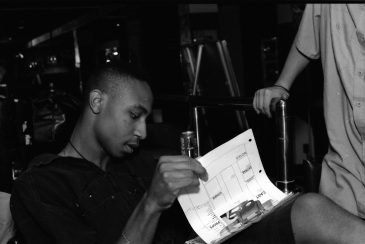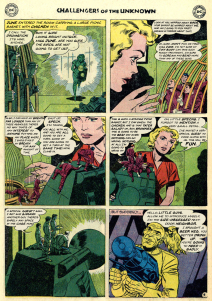 The only occupation seemingly more coveted in Hollywood than the Director’s chair is the starring or co-starring role that can make you a bankable talent. In my 25+ years as a Producer/Director, I’ve cast nearly 1000 roles in everything from theatrical motion pictures to TV pilots to Commercials and Music Videos. And, while talent agencies like to make aspiring actors believe they are the gatekeepers to a career in motion pictures, the truth is that it is the Producers and the Directors that hire and fire on-screen talent. I’ve hired many, and fired a few. Here’s some advice to the throngs of aspiring actors and actresses for getting your career started:
The only occupation seemingly more coveted in Hollywood than the Director’s chair is the starring or co-starring role that can make you a bankable talent. In my 25+ years as a Producer/Director, I’ve cast nearly 1000 roles in everything from theatrical motion pictures to TV pilots to Commercials and Music Videos. And, while talent agencies like to make aspiring actors believe they are the gatekeepers to a career in motion pictures, the truth is that it is the Producers and the Directors that hire and fire on-screen talent. I’ve hired many, and fired a few. Here’s some advice to the throngs of aspiring actors and actresses for getting your career started:
Learn and Refine a Strong, Proactive Work Ethic: Every time you go for an audition, submit a headshot, or deliver a performance, you are interviewing for your next job. Just because you may think you’re in an insignificant role, or that nobody is really paying attention, producers, directors and cinematographers are always making note of actors who are on-time, take direction, don’t complain and are personable. Of course, you must have the talent to perform your part when called upon, but many producers and directors are willing to see past some inexperience and shepherd a young talent along if they feel that their efforts will not be wasted on someone who is going to flake out on them when they offer them that pivotal, career-building role.
Know your place on the set: Remember that the eyes and ears of the Producer and Director are everywhere, and they are called the crew. There’s nothing more annoying on a set than an actor or actress who is so oblivious to anything or anyone but themselves that they make themselves a stench to everyone around them. Actors who complain about long hours or their discomforts and inconveniences prove themselves to be bad employees, and won’t be asked back again. For every hour you may spend on set as an actor, most crew members will spend three. And grips, electricians, hair and makeup artists and camera operators don’t get the promise of royalties and TV interviews if the film does well. Make sure to show them your appreciation for the hard work they’re doing.
 Jason Dixie, Key PA, “In the Company of Men”
Jason Dixie, Key PA, “In the Company of Men”
Learn to be multi-faceted and bring more to the table: In the indie film world, actors who only want to act and don’t want to get their hands dirty are relatively worthless to the production overall when compared to an actor who is also willing to work behind the scenes and be part of the crew, production office team or even just run errands. Independent film productions, in particular, have no shortage of open positions on a crew that can many times be filled by anyone who is willing, able and reliable. “In the Company of Men” co-star Jason Dixie had volunteered to be a Production Assistant for the film long before he was cast opposite then-unknown Aaron Eckhart (“The Dark Knight”) to play in the film’s now famous “Intern Scene.” As the film’s Producer, I suggested Jason for the role to Writer/Director Neil Labute, reminding him that Jason was already on the crew, so why not let him read for the part? The rest is cinema history.
Don’t waste your time with Actor/Model searches: To those of us who actually hire and cast roles in legitimate productions, the cattle-call Actor and Model searches that make the rounds each year, promising to get you exposed to “Real Hollywood Producers” for a fee is a joke. Any talent agency that charges you money to be represented is a scam, pure and simple. An agent’s job is to get you paid jobs, and take a percentage of it. That’s it. If they really think they can get you work, the payoff from booking you on your first few gigs should be enough to motivate them. If they’re demanding that you pay them upfront for things like new head shots and to be listed on their website, they’re not going to get you work. You represent a one-time transaction to them, and they just got paid. In my 30 years in the motion picture industry, I’ve never once had one of those “pay us for representation” agencies reach out to me on behalf of a client. That should tell you something.
Understand that you may not yet be ready for that big role: Playing a lead or even a supporting role in a film or television production is a lot of responsibility. With a role of that significance, a producer or a director is banking on your being able to deliver the performance and carry the role believably – over and over and over again. Leading actors are in the lead roles not just because they look the part, but because they have mastered their craft and can adapt, take direction, interpret what a director really wants – even when he or she isn’t good at communicating it – and then being able to lock that performance in and repeat it, take after take, angle after angle. That kind of pliability and consistency only comes with years of steady practice, working your way up in roles that are not more than you can handle. I once cast an actress in a starring role in a feature film, believing that her repeated good performances in auditions and rehearsals would show up with her once principal photography began. By the end of the first week of production of what would be a 35 day production schedule, her performances were so weak and so inconsistent that it was painfully obvious that she had lied about the majority of her experience, and was completely out of her league in a lead role. When her performance reached the point where she mentally couldn’t conjure the character consistently for more than one take, I halted production and had no choice but to fire her. It set us back nearly 3 months to find a replacement and re-shoot all of her scenes.
An acting career is not a sprint race, it is an Olympic Triathlon, and only the strong and survival-minded finish the race. While one starring role may put someone in the spotlight for the moment, the truly successful acting careers are made up of decades of excellent work, not just a one hit wonder. Those who are in it for the long haul always finish on top.
Share this:
Like this:Like Loading...
 The only occupation seemingly more coveted in Hollywood than the Director’s chair is the starring or co-starring role that can make you a bankable talent. In my 25+ years as a Producer/Director, I’ve cast nearly 1000 roles in everything from theatrical motion pictures to TV pilots to Commercials and Music Videos. And, while talent agencies like to make aspiring actors believe they are the gatekeepers to a career in motion pictures, the truth is that it is the Producers and the Directors that hire and fire on-screen talent. I’ve hired many, and fired a few. Here’s some advice to the throngs of aspiring actors and actresses for getting your career started:
The only occupation seemingly more coveted in Hollywood than the Director’s chair is the starring or co-starring role that can make you a bankable talent. In my 25+ years as a Producer/Director, I’ve cast nearly 1000 roles in everything from theatrical motion pictures to TV pilots to Commercials and Music Videos. And, while talent agencies like to make aspiring actors believe they are the gatekeepers to a career in motion pictures, the truth is that it is the Producers and the Directors that hire and fire on-screen talent. I’ve hired many, and fired a few. Here’s some advice to the throngs of aspiring actors and actresses for getting your career started: Jason Dixie, Key PA, “In the Company of Men”
Jason Dixie, Key PA, “In the Company of Men”






